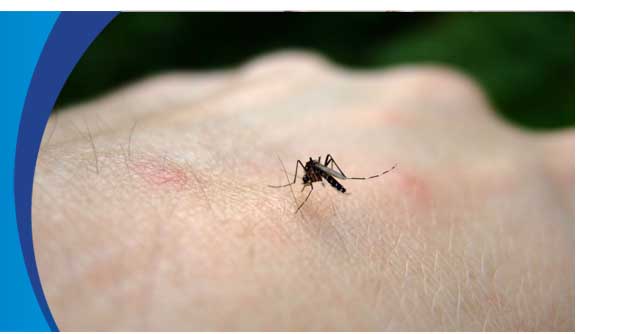Yellow Fever Vaccine Recommendations
Yellow fever vaccine is recommended for people aged > 9 months who are traveling to or living in areas at risk for yellow fever virus transmission in South America and Africa. Yellow fever vaccine may be required for entry into certain countries. Yellow fever vaccination requirements and recommendations for specific countries are available on the CDC Travelers' Health page.
Locations of centers are available from your local health department or on CDC's Travelers' Health Yellow Fever Vaccination Clinics page.
We have the Yellow Fever vaccine in stock with no appointment necessary. Call our office for more information regarding the vaccine @ (901) 685-9999
For most travelers, a single dose of yellow fever vaccine provides long-lasting protection and a booster dose of the vaccine is not needed. However, some travelers may require a booster dose. Also, certain countries might require a booster dose of the vaccine. Visit Travelers' Health for information on specific country requirements.
The Shot Nurse vaccinates persons ages 3 and up. As a precaution, for anyone 60 years and older, check with your healthcare provider about taking the vaccine.
Reactions to Yellow Fever Vaccine
Reactions to yellow fever vaccine are generally mild and include headaches, muscle aches, and low-grade fevers. There have been reports of rare but serious events following yellow fever vaccination. These events include life-threatening allergic reaction, disease affecting the nervous system, and disease affecting certain internal organs. Testing can be performed to look for certain serious adverse events. Talk to your healthcare provider or travel health clinic provider if you have symptoms that concern you following your yellow fever vaccination.
Because certain people have an increased risk of developing a serious adverse event if vaccinated with yellow fever vaccine, vaccine is not recommended (i.e., contraindicated) for people with:
- Allergy to a vaccine component
- Age <6 months
- Symptomatic HIV infection or CD4+ T-lymphocytes <200/mm3 (<15% of total in children aged <6 years)
- Thymus disorder associated with abnormal immune function
- Primary immunodeficiencies
- Malignant neoplasms
- Transplantation
- Immunosuppressive and immunomodulatory therapies
- Age 6 to 8 months
- Age >60 years
- Asymptomatic HIV infection and CD4+ T-lymphocytes 200 to 499/mm3 (15-24% of total in children aged < 6 years)
- Pregnancy
- Breastfeeding
Booster doses of the vaccine
In February 2015, the CDC Advisory Committee on Immunization Practices (ACIP) approved a new recommendation that a single dose of yellow fever vaccine provides long-lasting protection and is adequate for most travelers. The updated recommendations also identify specific groups of travelers who should receive additional doses and others for whom additional doses may be considered including:
- Woman who were pregnant when first vaccinated
- Persons who received a hematopoietic stem cell transplant following their last dose of yellow fever vaccine
- Persons who are HIV-infected
- Travelers who received yellow fever vaccine at least 10 years previously and who will be in a higher-risk setting based on season, location, activities, and duration of their travel
- Laboratory workers who routinely handle wild-type yellow fever virus
- Avoid mosquito bites when traveling in tropical areas. Mosquitoes that spread yellow fever usually bite during the day, especially at dusk and dawn.
- When outside:
- Wear long-sleeved clothing and long pants. For extra protection, treat clothing with the insecticide permethrin.
- Use insect repellent on exposed skin. Repellents containing DEET (N,N-diethylmetatoluamide), Picaridin (KBR 3023), IR 3535, p-Menthane 3,8-diole (PMD or oil of lemon eucalyptus) are effective. Follow application instructions carefully.
- When inside:
- Stay in well-screened areas as much as possible.
- Spray living and sleeping areas with insecticide.
What is the basic yellow fever transmission cycle?
 *  There are two kinds of yellow fever, spread by two different cycles of infection.
- Jungle yellow fever is mainly a disease of monkeys. It is spread from infected mosquitoes to monkeys in the tropical rain forest. People get jungle yellow fever when they are bitten by mosquitoes that have been infected after feeding on infected monkeys. Jungle yellow fever is rare and occurs mainly in persons who live or work in tropical rain forests.
- Urban yellow fever is a disease of humans. It is spread by mosquitoes that have been infected by other people. Aedes aegypti is the type of mosquito that usually carries yellow fever from human to human. These mosquitoes have adapted to living among humans in cities, towns, and villages. Their larvae grow in discarded tires, flower pots, oil drums, and water storage containers close to human dwellings. Urban yellow fever is the cause of most yellow fever outbreaks and epidemics.
What type of illness does yellow fever virus cause?
*Â Â Illness ranges in severity from a self-limited febrile illness to severe hepatitis and hemorrhagic fever. Many yellow fever infections are mild, but the disease can cause severe, life-threatening illness. Symptoms of severe infection are high fever, chills, headache, muscle aches, vomiting, and backache. After a brief recovery period, the infection can lead to shock, bleeding, and kidney and liver failure. Liver failure causes jaundice (yellowing of the skin and the whites of the eyes), which gives yellow fever its name. Severe yellow fever infections can be fatal.
What is the incubation period for yellow fever?
*Â Â The incubation period (time from infection to illness) is usually 3-6 days.
How is yellow fever treated?
*Â Â There is no specific treatment for yellow fever. Treatment is symptomatic-rest, fluids, and ibuprofen, naproxen, acetaminophen, or paracetamol may relieve symptoms of fever and aching. Aspirin should be avoided. Infected persons should be protected from further mosquito exposure (staying indoors and/or under a mosquito net during the first few days of illness) so that they can't contribute to the transmission cycle.
Content Source:
Division of Vector Borne Infectious Diseases>
National Center for Zoonotic, Vector-Borne, and Enteric Diseases
